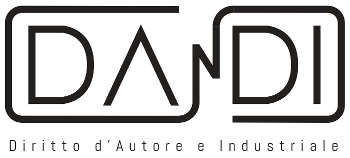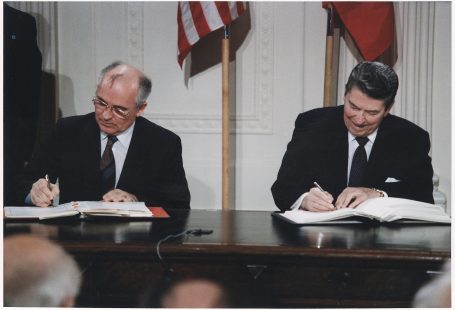Moral right in the European Union
We are considering doing a survey on moral rights in the European Union. Thus, we would be glad if you could take some time to answer the following questions. The collected information will considerably help us to point out the main differences between all the national legislations considered in this subject.
1) Does your legislation on copyright provide for a moral right?
Yes, it does.
In Italy moral rights are primarily protected under Title I, Chapter III, Section II of Law no. 633, 1941 (the “Italian Copyright Act”), entitled “Protection of rights on the art work in defence of the personality of the author (Author’s moral right),” encompassing Articles 20-24.
2) If yes, what is the legal definition of the moral right according to your national copyright law?
As the French “droit moral,” in Italy “moral right” refers to authors’ prerogative to control the uses of their work. If the economics faculties serve to guarantee to authors a share in the income from work exploitation, “droit mora”l and its faculties serve to guarantee protection for the personal, intellectual and spiritual interests of authors.
However, the Italian Copyright Act does not provide for any specific definitions of “moral right”.
Nonetheless, such definition could be inferred from Article 20, Italian Copyright Act, according to which “independently of the author’s economic rights (…) and even after the transfer of said rights, the author shall have the right to claim authorship of the work and to object to any distortion, mutilation or other modification of, or other derogatory action in relation to, the said work, which might be prejudicial to his/her honour or reputation.”
It follows that authors are entitled to moral rights in addition to the economic rights to exploit the art work and such moral rights include both paternity and integrity rights.
3) What are the main prerogatives covered by your moral right? It is possible for the author to waive his moral rights and to what extent?
As said above, the moral rights directly recognized by Italian Copyright Act are: (i) the right of paternity (ii) the right of integrity and, (iii) the right of withdrawal.
(i) The paternity right (Article 20, Italian Copyright Act) includes both the author’s right to be mentioned as the author of the art work that he/she has created as well as the right to publish anonymously or pseudonymously (i.e. right of non-paternity, which is the latter possibility embodied into the right).
In light of this, not mentioning the author’s name/pseudonymous may give rise to copyright infringement, unless the author has expressly asked to remain anonymous. In this prospective it could be said that the paternity rights has two facets: one is the negative or defensive way or, better said, the fact that the author can claim for recognition of his/her authorship by third parties, but also in a positive way the author can determine whether a work is to bear an author’s designation and what designation is to be used.
Article 21, Italian Copyright Act, expressively states that the author of an anonymous or pseudonymous work shall at all times have the right to reveal his/her identity and to have his/her position as author recognized by judicial procedure. Notwithstanding any prior agreement to the contrary, the successors in title of an author who has revealed his/her identity shall be required to indicate the name of the author in publications, reproductions, transcriptions, performances, recitations and broadcasts, or in any other form of manifestation or announcement to the public.
The right of paternity is also the power granted to the author to have his/her name reproduced in “the customary matter” (Article 40, Italian Copyright Act [1]). However this power is strictly connected to the work and to the way of its exploitation. It could not work in relation to architectural or industrial design works, but it could be easily applied to articles written for newspapers or magazines.
(ii) The right of integrity (Article 20, Italian Copyright Act) preserves the relevant art work from alteration, distortion, or mutilation. Any modifications of the art work that may affect the author’s reputation bring the right of integrity into play, even after the author’s assignment of his/her economic rights on such work.
It should be noted, however, that pursuant to Article 20, paragraph 2, Italian Copyright Act, the author of an architectural work cannot oppose to the modification necessary to build such work, provided however that if the architectural work has an artistic value recognized by the competent State authority, the author shall have the right to study and directly make such modification.
(iii) The right of withdrawal (Articles 142 and 143, Italian Copyright Act[2]). It is the other side of the disclosure right. Withdrawal and repentance involve removing the work either from the person with exploitation rights or from the public arena because it no longer expresses the author’s opinions and, by implication, needs corrections.
Additional, the Italian Copyright Act indirectly recognizes another right, linked to the above mentioned, which is the right of disclosure. It is the right of the author to choose when to release a work from his/ her private world into the public arena. This might be done through exhibition or publication of the work, or through its performance. Recognition of this right entails judgements about the status of the work prior to first disclosure.
There is also the right to publish unpublished works. According to Article 24, Italian Copyright Act, unless the author has expressly forbidden publication or has entrusted it to other persons, the right to publish unpublished works shall belong to the heirs of the author or to the legatees of the work. If the author has fixed a period of time to precede publication, unpublished works shall not be published before the expiration of such period. If more than one person is concerned by the first paragraph and there is disagreement between them, the matter shall be decided by judicial authority after hearing the public prosecutor. The wishes of the deceased person, when expressed in writing, shall in all cases be respected.
Italy strictly stresses the inalienability of moral rights. As far as the moral right waivability is concerned, according to Article 22, paragraph 1, Italian Copyright Act, the author’s moral rights are not transferable and, consequently, not waivable. Therefore, even upon the assignment of the economic rights on his/her art work the author keeps the paternity and integrity rights to such work.
Consequently, any waivers and/or transfers of the author’s moral right are void under Italian law.
However, according to Article 22, paragraph 2, Italian Copyright Act, the author that – being aware of the modification of his/her art work – accepts such modifications is not further entitled to prevent the performance or to demand the suppression of the relevant work.
4) How these prerogatives are applied in the case of collaborative authorships or composite works?
Moral rights are personal so that if the work has been created by the indistinguishable and inseparable contributions of two or more persons, the copyright shall belong to all the relevant authors jointly.
Pursuant to Article 10, paragraph 2, Italian Copyright Act, each joint author is entitled to exercise individually his/her moral rights at any time, while the mutual agreement of all the joint authors is required to publish an unpublished work and to modify and/or use in a different way the original art work. However, in case of unreasonable refusals of one or more of the joint authors occur a judicial authority may authorize the relevant publication, modification or new utilisation, setting forth the conditions to do so.
5) Does your moral right have a term of protection or it is perpetual?
In Italy moral rights are perpetual.
According to Article 23, paragraph 1, Italian Copyright Act, upon the author’s death certain author’s heirs (namely: his/her spouse and children and, in the absence thereof, his/her parents and other direct ascendants and descendants, and in the absence of such ascendants and descendants, his/her brothers and sisters and their descendants) are entitled, with no time limitation, to exercise both author’s paternity and integrity rights.
Therefore, the author’s heirs above may exercise the author’s moral right, even after the art work falls into the public domain.
It should be noted that pursuant to Article 23, paragraph 2, Italian Copyright Act, in case public interests are involved the Italian government will be entitled to exercise author’s moral right.
6) Is the content of your moral right the same for whatever work considered or do you make a difference regarding industrial works, applied arts or other creations? Is it relevant the fact that the support of the creation must be manufactured industrially and produced in huge quantities?
Save for the provision set forth in Article 20, paragraph 2, Italian Copyright Act, in connection with the right to modify architectural works (see the answer to question 2 above) there are no differences concerning moral rights arising from the nature of the relevant work.
7) Do you take into account the secondary nature of the work compared to the product itself? (e.g.: a bottle of perfume would be considered to be secondary compared to the perfume itself as consumers do not generally buy the perfume because of the bottle in which it is contained, but for the fragrance itself).
This question is not clear. Generally speaking, the secondary nature of a work (at least the way this is described in the question above) does not affect moral rights under Italian law.
[1] Article 40. “In the absence of agreement to the contrary, a contributor to a collective work other than a magazine or newspaper shall be entitled to have his name appear in the customary manner in the reproduction of his work.
In the absence of agreement to the contrary, this right shall not be enjoyed by the editorial staff of newspapers.”
[2] Article 142. “Whenever serious moral reasons arise, the author shall be entitled to withdraw his work from the market, subject to liability to compensate any persons who have acquired rights to reproduce, disseminate, perform or sell such work.
This right is personal and is not transmissible.
In order to exercise this right, the author shall notify his intention to the persons to whom he has transferred rights and to the Ministry of Cultural Heritage and Environmental conservation that shall give public notice of such intention in the manner laid down by the Regulations.
Within a period of one year from the last date of notification and publication, the interested parties may have recourse to judicial authority to oppose the exercise of the claim of the author or to obtain liquidation and compensation for damages.”
Article 143. “If the judicial authority accepts the existence of the serious moral reasons invoked by the author, it shall prohibit the reproduction, dissemination, performance or sale of the work, subject to the payment of compensation to the interested parties, and shall set the amount of such compensation and the period for its payment.
Before the expiry of the period laid down in the final paragraph of the preceding Article, the judicial authority may provisionally order prohibition, upon request if it finds that urgent reasons exist, after payment of such security as it may deem necessary.
If the compensation is not paid within the period set by the judicial authority, the effects of the order shall automatically cease.
Continued reproduction, dissemination, performance or sale of the work after the expiry of the period allowed for recourse to the judicial authority, as laid down in the final paragraph of the foregoing Article, or after any order suspending trading in the work, shall be liable to the civil and penal sanctions under this Law for infringement of copyright.”
Dandi Law Firm provides legal assistance in Copyright. Check out our Services or contact Us!






